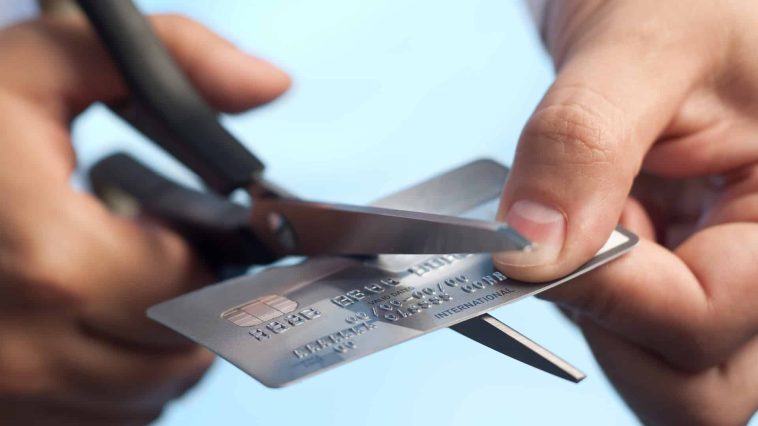Part 1: The Basics of Student Credit Cards
Credit cards can be a useful financial tool for students, offering not only a way to build credit history but also convenience and rewards. However, without proper management, they can quickly lead to financial troubles. This part of the article highlights the common mistakes students make with credit cards and how to avoid them.
Advertisement
Understanding Credit Card Basics
Before diving into the common pitfalls, it’s important to understand the basics of how credit cards work. A credit card essentially offers you a line of credit that you can borrow against. This credit needs to be repaid, and if it’s not paid off each month, interest is charged on the remaining balance. Here are some critical aspects to consider:
- Interest Rates: Credit cards typically have high interest rates, which can significantly increase the debt if balances are not paid in full.
- Credit Limit: This is the maximum amount you can charge to your card. Exceeding this limit can result in fees and can harm your credit score.
Common Student Credit Card Mistakes
- Misunderstanding Credit Card Usage: Many students believe a credit card is an extension of their cash flow. It’s crucial to understand that every dollar borrowed needs to be paid back, with interest if not paid in full by the end of the billing cycle.
- Failing to Pay the Full Balance: Only paying the minimum payment each month can lead to mounting interest and a growing balance that becomes difficult to manage.
- Using Credit for Everyday Expenses: Reliance on credit for daily purchases like food and entertainment can quickly lead to unmanageable debt.
- Ignoring the Terms and Conditions: Many students do not read the fine print of their credit card agreements, which outline fees, penalties, and the interest rate.
Strategies to Avoid These Mistakes
- Create a Budget: Monitor your expenses and use your credit card for planned purchases only.
- Educate Yourself on Interest Rates and Fees: Know what your card charges for interest, and understand how much late payments and going over your limit could cost you.
- Use Alerts and Tools: Most credit card issuers offer tools to alert you when you’re approaching your credit limit or when your bill is due.
Part 2: Navigating Credit Card Pitfalls as a Student
Continuing from the foundational mistakes discussed, this section delves deeper into the intricacies of credit card use among students, highlighting additional pitfalls and offering more comprehensive strategies for avoiding these common errors.
Additional Common Credit Card Mistakes
- Ignoring Credit Utilization: This is the ratio of your credit card balance to your credit limit, and it plays a significant role in your credit score. High utilization can signal to creditors that you’re a risky borrower, negatively impacting your credit score.
- Applying for Multiple Cards: Students often apply for several cards, enticed by various rewards or promotional offers. However, each application can result in a hard inquiry on your credit report, potentially lowering your credit score.
- Late Payments: Missing payment deadlines not only results in late fees but also damages your credit score, making future credit more expensive or difficult to obtain.
- Relying on Cash Advances: Using your credit card to get cash is a costly option due to high fees and interest rates that accrue immediately, unlike purchases.
Advanced Strategies to Avoid Mistakes
- Understand Credit Utilization: Keep your credit utilization below 30% of your total credit limit across all cards to help maintain or improve your credit score.
- Choose Your First Credit Card Wisely: Rather than applying for multiple cards, select one with terms that best meet your needs (e.g., low interest rate, no annual fee) and stick with it to build your credit history.
- Set Up Automatic Payments: To avoid late payments, set up automatic payments for at least the minimum amount due each month.
- Reserve Cash Advances for Emergencies: Understand the costs associated with cash advances and reserve them for true emergencies.
Building Good Credit Habits
Developing responsible credit habits early can set the stage for financial stability. Here are a few habits to cultivate:
Advertisement
- Regularly Monitor Your Credit Score: Many credit card issuers provide free access to your credit score. Use this feature to track how your financial behaviors affect your score.
- Read Your Credit Card Statements: Regular review of your statements can help you catch unauthorized transactions and understand how your spending decisions impact your balance.
- Educate Yourself on Financial Management: Take advantage of financial literacy resources often provided by schools, banks, and credit card issuers to better understand how to manage credit and debt effectively.

The Ultimate Guide to State-Specific Scholarships —

Scholarship Renewal: Ensuring Continued Financial Support —
Advertisement
